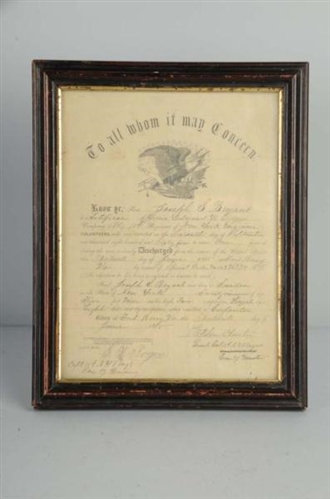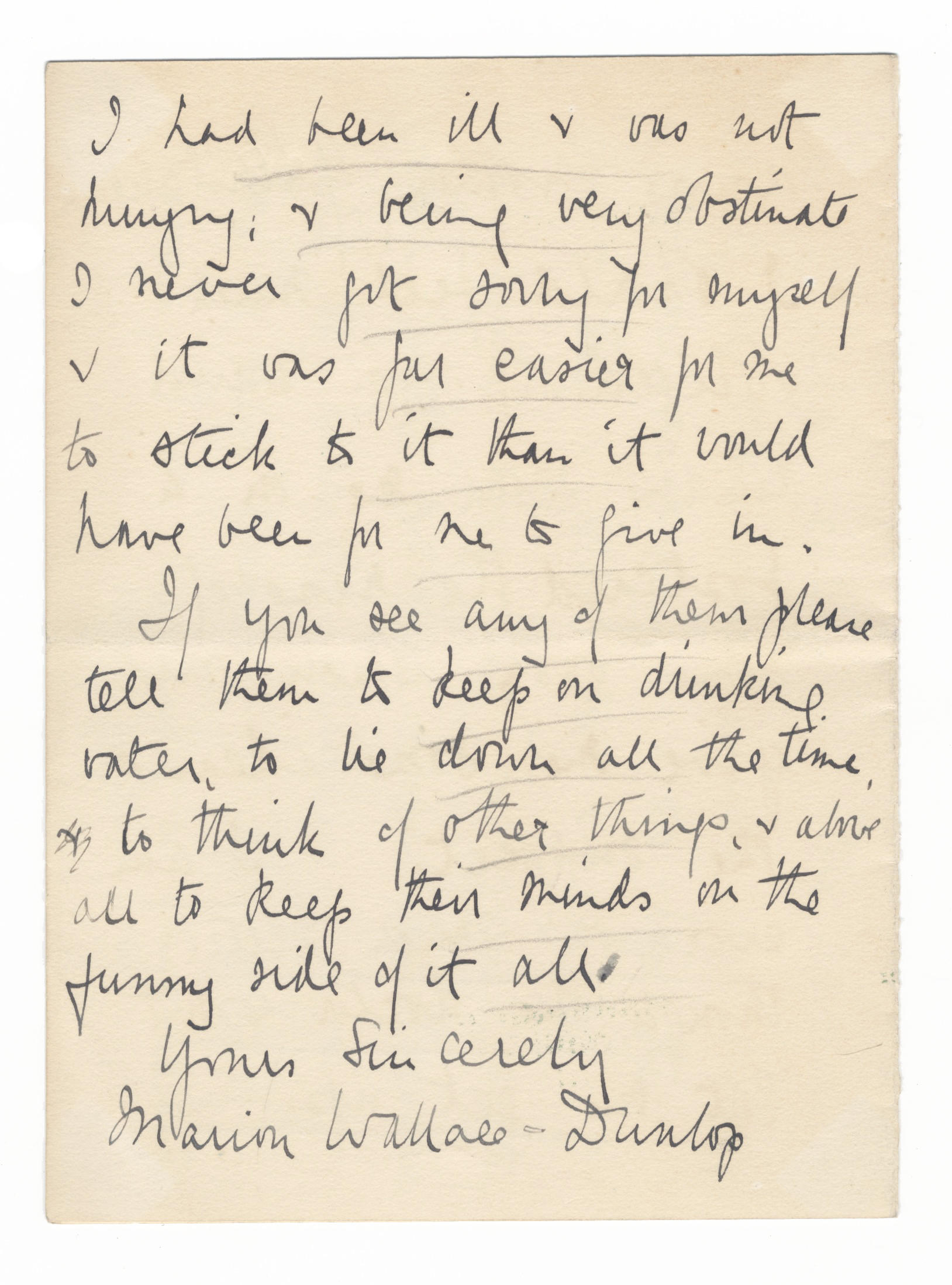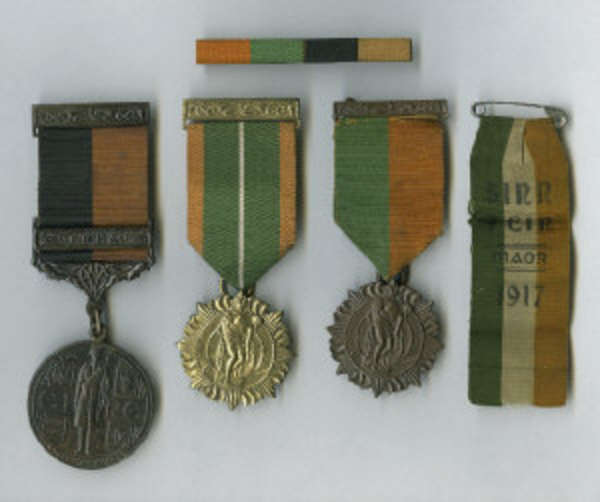Official discharge letter signed by George Anson, and Samuel Barrington for sailor in sick quarters aboard the H.M.S. Salisbury at the time of James Lind's historic experiment on scurvy Author: Place: Sick Quarters, Plymouth Publisher: Office of the Lord High Admiral Date: 1747 Description: Autograph discharge letter signed by Admiral Anson, Barrington and Duncannon. 25.5x19.8 cm (10x7¾"). Document signed by G. Anson, Barrington and Duncannon authorizing the discharge of William Jefferys on HMS Salisbury, a 50-gun fourth rate ship of the line of the Royal Navy active in the war of the Austrian Succession (1740-48) and later in the Seven Years' War (1756-1763). Aside from the association with Anson and Barrington, the document is significant in that the letter states that William Jefferys "belonging to his Majesty's Ship the Salisbury now at Sick Quarters at Plymouth" is the one to be discharged. It is likely that William Jefferys had been one of several sailors suffering from scurvy aboard the Salisbury. At the time the ship's surgeon was James Lind (1716–1794) who would in 1753 publish the results of his experiments aboard the Salisbury as A Treatise of the Scurvy, and dedicate the book to George Lord Anson, "[w]ho, as a just reward for the great and signal services done to the BRITISH NATION, does now preside over her NAVAL AFFAIRS." While the implications of using citrus for the treatment of scurvy were monumental for the health of the maritime workforce in the age of sail, the experiment is also historically significant in that Lind's clinical trial included control groups. It has been attributed as the first such experiment documented in the history of medicine. At the very least, William Jefferys was a sailor aboard the historic HMS Salisbury, a patient treated by Lind, and quite possibly one of the patients involved in Lind's world-changing experiment. Between the date this letter was penned on 8 June, 1747 and the date it was received (12 June), George Anson would be elevated to the peerage as Lord Anson, Baron of Soberton, in the County of Southampton (11 June, 1747). Just one year later Anson would publish his narrative Voyage Round the World in the Years MDCCXL, I, II, III, IV. Admiral Barrington would later preside over Captain William Bligh's court martial, and subsequent acquittal, related to the mutiny on HMS Bounty. From pages 191-196 of Lind's A Treatise of Scurvy, "The following are the experiments. On the 20th May, 1747, I took twelve patients in the scurvy onboard the Salisbury at sea. Their cases were as similar as I could have them. They all in general had putrid gums, the spots and lassitude, with weakness of their knees. They lay together in one place, being a proper apartment for the sick in the fore-hold; and had one diet in common to all, viz., water gruel sweetened with sugar in the morning; fresh mutton broth often times for dinner; at other times puddings, boiled biscuit with sugar etc.; and for supper barley, raisins, rice and currants, sago and wine, or the like. Two of these were ordered each a quart of cyder a day. Two others took twenty five gutts of elixir vitriol three times a day upon an empty stomach, using a gargle strongly acidulated with it for their mouths. Two others took two spoonfuls of vinegar three times a day upon an empty stomach, having their gruels and their other food well acidulated with it, as also the gargle for the mouth. Two of the worst patients, with the tendons in the ham rigid (a symptom none the rest had) were put under a course of sea water. Of this they drank half a pint every day and sometimes more or less as it operated by way of gentle physic. Two others had each two oranges and one lemon given them every day. These they eat with greediness at different times upon an empty stomach. They continued but six days under this course, having consumed the quantity that could be spared. The two remaining patients took the bigness of a nutmeg three times a day of an el
Official discharge letter signed by George Anson, and Samuel Barrington for sailor in sick quarters aboard the H.M.S. Salisbury at the time of James Lind's historic experiment on scurvy Author: Place: Sick Quarters, Plymouth Publisher: Office of the Lord High Admiral Date: 1747 Description: Autograph discharge letter signed by Admiral Anson, Barrington and Duncannon. 25.5x19.8 cm (10x7¾"). Document signed by G. Anson, Barrington and Duncannon authorizing the discharge of William Jefferys on HMS Salisbury, a 50-gun fourth rate ship of the line of the Royal Navy active in the war of the Austrian Succession (1740-48) and later in the Seven Years' War (1756-1763). Aside from the association with Anson and Barrington, the document is significant in that the letter states that William Jefferys "belonging to his Majesty's Ship the Salisbury now at Sick Quarters at Plymouth" is the one to be discharged. It is likely that William Jefferys had been one of several sailors suffering from scurvy aboard the Salisbury. At the time the ship's surgeon was James Lind (1716–1794) who would in 1753 publish the results of his experiments aboard the Salisbury as A Treatise of the Scurvy, and dedicate the book to George Lord Anson, "[w]ho, as a just reward for the great and signal services done to the BRITISH NATION, does now preside over her NAVAL AFFAIRS." While the implications of using citrus for the treatment of scurvy were monumental for the health of the maritime workforce in the age of sail, the experiment is also historically significant in that Lind's clinical trial included control groups. It has been attributed as the first such experiment documented in the history of medicine. At the very least, William Jefferys was a sailor aboard the historic HMS Salisbury, a patient treated by Lind, and quite possibly one of the patients involved in Lind's world-changing experiment. Between the date this letter was penned on 8 June, 1747 and the date it was received (12 June), George Anson would be elevated to the peerage as Lord Anson, Baron of Soberton, in the County of Southampton (11 June, 1747). Just one year later Anson would publish his narrative Voyage Round the World in the Years MDCCXL, I, II, III, IV. Admiral Barrington would later preside over Captain William Bligh's court martial, and subsequent acquittal, related to the mutiny on HMS Bounty. From pages 191-196 of Lind's A Treatise of Scurvy, "The following are the experiments. On the 20th May, 1747, I took twelve patients in the scurvy onboard the Salisbury at sea. Their cases were as similar as I could have them. They all in general had putrid gums, the spots and lassitude, with weakness of their knees. They lay together in one place, being a proper apartment for the sick in the fore-hold; and had one diet in common to all, viz., water gruel sweetened with sugar in the morning; fresh mutton broth often times for dinner; at other times puddings, boiled biscuit with sugar etc.; and for supper barley, raisins, rice and currants, sago and wine, or the like. Two of these were ordered each a quart of cyder a day. Two others took twenty five gutts of elixir vitriol three times a day upon an empty stomach, using a gargle strongly acidulated with it for their mouths. Two others took two spoonfuls of vinegar three times a day upon an empty stomach, having their gruels and their other food well acidulated with it, as also the gargle for the mouth. Two of the worst patients, with the tendons in the ham rigid (a symptom none the rest had) were put under a course of sea water. Of this they drank half a pint every day and sometimes more or less as it operated by way of gentle physic. Two others had each two oranges and one lemon given them every day. These they eat with greediness at different times upon an empty stomach. They continued but six days under this course, having consumed the quantity that could be spared. The two remaining patients took the bigness of a nutmeg three times a day of an el









/115890/Internet%20Image%201.jpg)


/97443/Internet%20Image%206.jpg)


Testen Sie LotSearch und seine Premium-Features 7 Tage - ohne Kosten!
Lassen Sie sich automatisch über neue Objekte in kommenden Auktionen benachrichtigen.
Suchauftrag anlegen